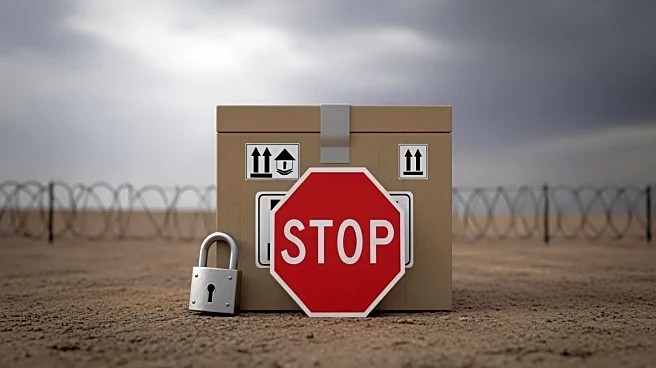What's Happening?
The ceasefire in Gaza is facing significant challenges as Israel has halted the transfer of aid into the territory following a reported violation by Hamas. This development comes shortly after the initiation
of a U.S.-proposed ceasefire aimed at ending two years of conflict. Israeli forces have launched a series of strikes in response to attacks from Hamas militants, resulting in the deaths of at least 19 Palestinians. The Israeli military claims to have targeted Hamas positions, while Hamas accuses Israel of multiple ceasefire breaches. Efforts to deescalate the situation are ongoing, with Egyptian officials involved in negotiations. The ceasefire's stability is crucial for the humanitarian situation in Gaza, where aid is desperately needed.
Why It's Important?
The halt in aid transfer and renewed hostilities threaten the fragile peace process in Gaza, impacting thousands of civilians who rely on humanitarian assistance. The ceasefire is a critical component of international efforts to stabilize the region and prevent further loss of life. The situation also has broader implications for regional stability and international relations, particularly involving countries like Egypt and the United States, which are key players in the peace negotiations. The continuation of violence could lead to a humanitarian crisis, affecting not only the local population but also international diplomatic efforts.
What's Next?
The immediate focus is on restoring the ceasefire and resuming aid deliveries to Gaza. Diplomatic efforts are likely to intensify, with international mediators working to bring both parties back to the negotiating table. The situation remains volatile, and any further escalation could derail the peace process. Stakeholders, including the United Nations and neighboring countries, are expected to play a significant role in facilitating dialogue and ensuring compliance with the ceasefire terms.









